THE CREATIVE ALGORITHM
Can the human mind’s creative process be broken down into simple 1s and 0s?
🎵 I CAN’T GET YOU OFF MY MIND 🎵
Today you’ll spend the afternoon at your best friend’s house. First, you both have lunch together and spend a while listening to One Direction’s music. Then, you go to the movies to watch the latest Marvel film: Eternals (nice post-credit scenes by the way). Later, you return to your buddy’s house, have dinner, and prepare for a sleepover with your soulmate friend. It’s midnight and you’re still awake. Your friend’s mom enters the room and asks: “What are you doing??” You both start singing: 🎵 We’ve been doing all this… late night… talking…” 🎵
Has it ever happened to you that you think exactly the same as your best friend? And at the same time?
This might be explained by the psychology of our subconscious mind1, which had processed all the information of what you heard and see throughout the day, even if you weren’t aware of most of this. The fact of your friend and yourself having past the last day together, living in the same environment, and being exposed to the same stimuli, might have influenced the immediate response you had to your friend’s mom's question. If this can happen with your friend only after passing a few hours together, imagine what could happen if two people spent together every single day, if they live together, work together, or even if they have similar genetic or neural patterns, just like it happens with twins. So, can each of these factors influence a more direct relationship between thoughts and ideas?
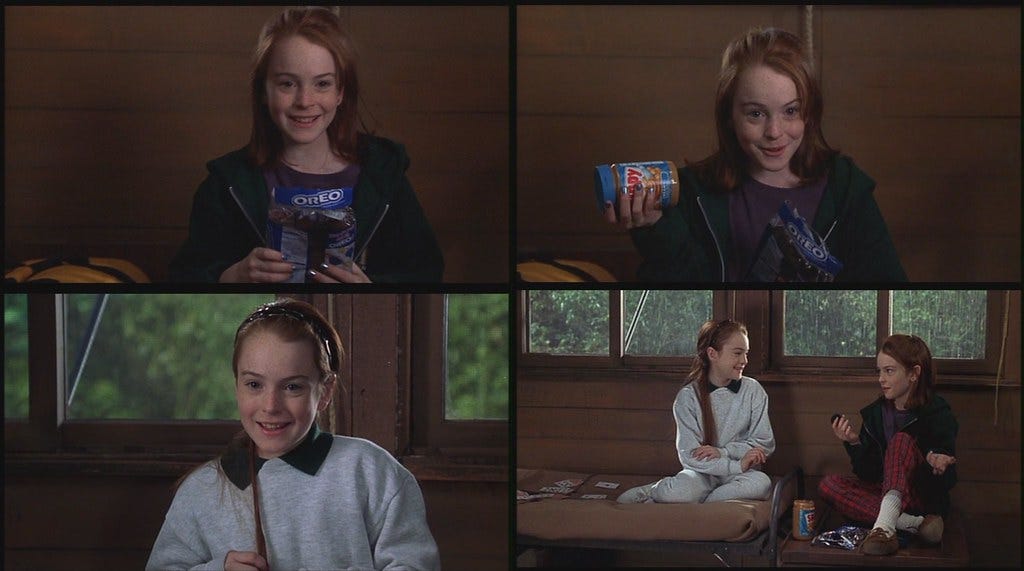
Well first, let’s talk about how exactly does our brain generate these ideas?
DEFINING CREATIVITY, DO GREAT IDEAS JUST SURGE OUT OF NOTHING?
We think of creativity as an enigma of humankind, we question big thinkers, painters, and other creatives about how their big ideas and pieces came to life. But is creativity actually such a complex process or have we romanticized this phenomenon in order to feel special as human beings?
About a year ago I was listening to this Mexican podcast called Creativo, which my biology teacher recommended to me2. In this podcast, they defined creativity as taking two things or concepts that already exist, and that seem to have nothing to do with each other, and coming up with a new or unusual way to connect them in order to create a new product or to find a new use for them. Steve Jobs also referred to this definition of creativity once3, and I think it’s completely on point, as saying that creativity is creating something completely new wouldn’t be completely accurate. Either Uber Eats or even the first cell phones were all inventions that surged from combining other factors that already existed.
Of course, this doesn’t mean creativity shouldn’t be valued, as this neurological process of connecting two ideas is extremely complex and remains incomprehensible to scientists and humanity nowadays. But what makes this creative process special? Is it its complexity itself? Is it the beauty, amusement, and feelings that its products evoke? And can Artificial Intelligence ever be able to replicate it?
SAME VARIABLES… SAME OUTPUTS?
Let’s go back to the best friend's story and let’s define variables as each of the stimuli or factors, either internal or external, that may influence an idea to surge. In our example, these variables are you and your friend eating the same food, watching the same movie, or listening to the same One Direction music, which might have triggered your subconscious to remember Harry Styles’ song later in the day. As I mentioned before, people who live together, or twins, are more likely to think similarly, as more variables in their thought processes are the same. So, we can conclude that as we increase the variables that are the same, we also increase how likely it is for a similar thought or idea to surge. So, is it possible to recreate the exact same creative output in two brains? Or even crazier, can this be achieved by a computer-based simulation or AI?
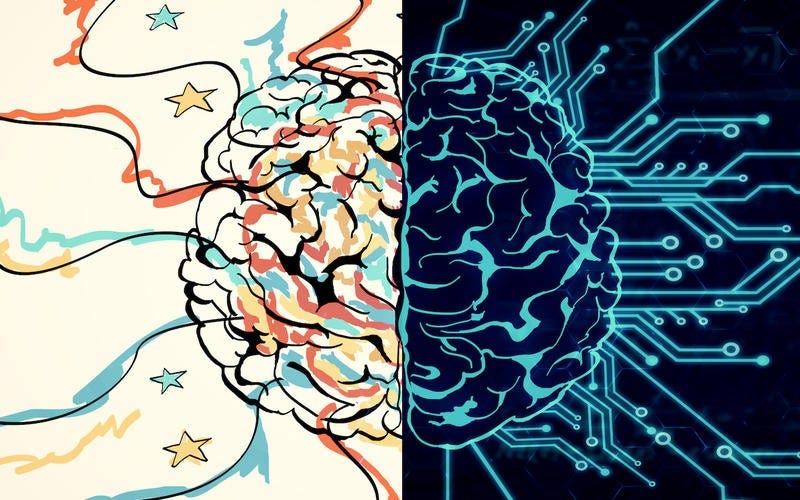
There are millions of variables in our brains and in the environment, which makes it seem impossible to replicate. However, these specific moments which we share with a friend, made me think that it might be possible. Yes, there might be billions or even trillions of variables if we think about it rigorously, but this number is still FINITE, isn’t it?
The human brain contains 86 billion neurons, and with each being able to connect with more than 1000 other neurons, we obtain about 100 trillion neuronal connections4, and this is without counting all the trillions of outside variables of stimuli to which our body can be exposed. Although this is a finite number, it still seems impossible to register such quantities of information right?
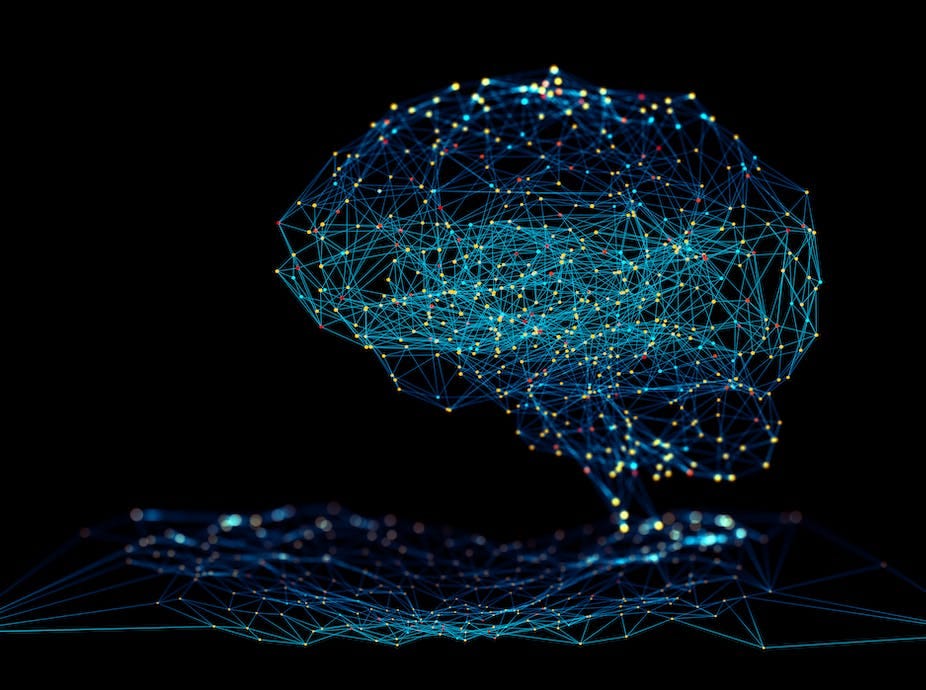
What if I told you that the current advancements in computer technology might be able to do something similar?
LET ME INTRODUCE YOU… WORLD, THESE ARE QUANTUM COMPUTERS
I recently heard about the existence of quantum computers, a kind of super-advanced hardware in which instead of using a binary system for processing information, quantum mechanics phenomena are used for increasing computing capabilities.5 These computers use a different unit for information, instead of using bits, they use qubits, which can take the value of two bits at the same time. This might not seem like a big deal, but if we do the maths, this would mean that with only 43 qubits, around 8 trillion bits can be processed.6 And the largest quantum computer today has 433 qubits, so just imagine how much information can these machines handle. For making it clearer, according to a Forbes article, “300 qubits can hold more states than the number of atoms in the universe.”7 These computers are currently used to process large quantities of information, either for financial purposes or within AI systems, and to carry out simulations of subatomic particle systems.
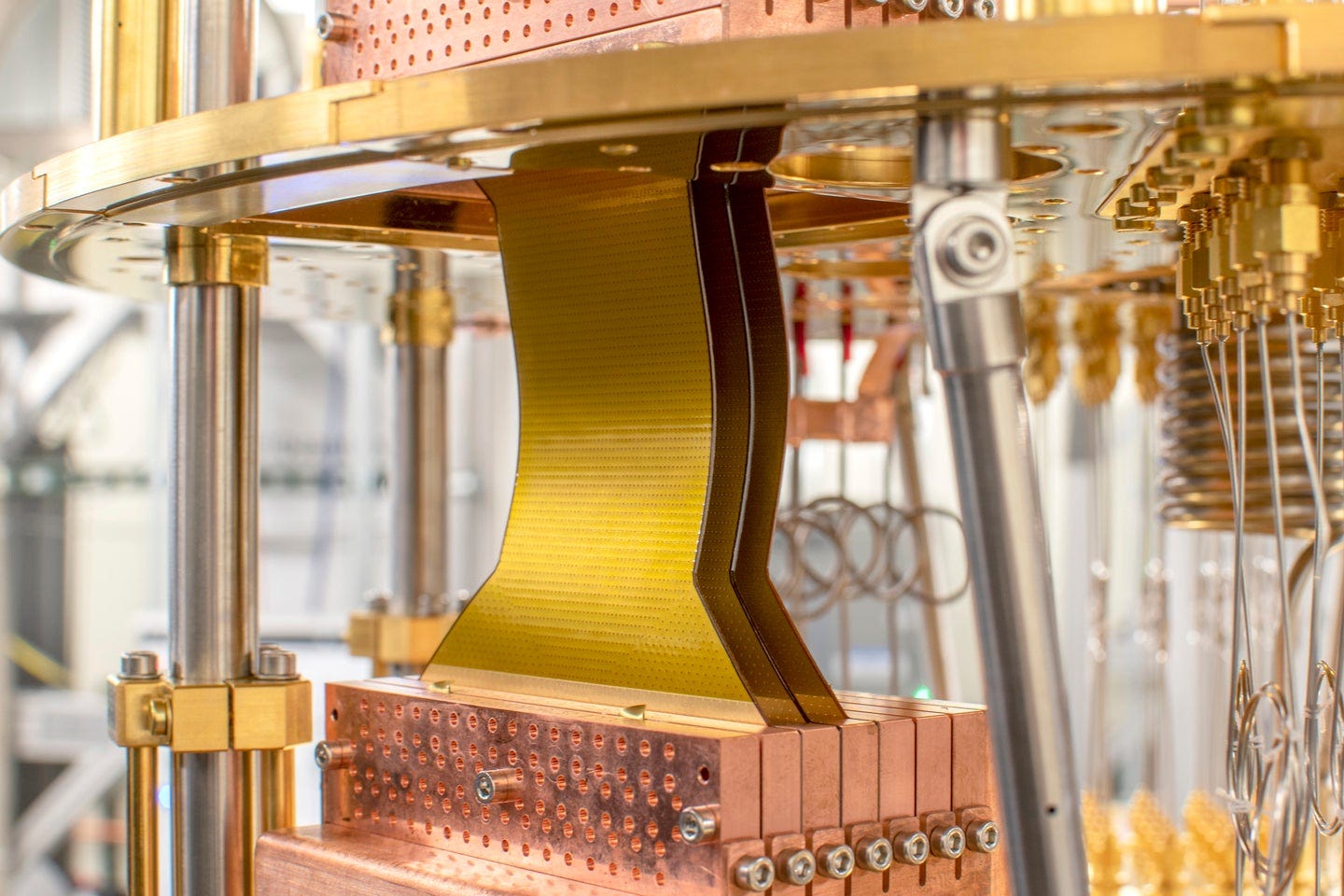
So, if the capability of these computers was used for simulating all the neuronal processes within our brain. With the specific conditions, would an AI be able to generate the exact same creative output as a human? It seems possible, right?
But of course in order to replicate all the conditions, we must know all the variables, and there’s the only issue, it seems like we’re quite far from that…
CONSCIOUSNESS: RANDOMNESS IN A VARIABLE?
Even when science, technology, and engineering have achieved huge advancements in AI, thanks to the replication of the way neural networks work, these artificial entities haven’t been able to fully replicate the way we think. Even when AI could generate the exact same creative output as humans under the exact same conditions, this would only take place because we humans programmed it in order to do it, and not the way we humans do it, in an organic way, seeking to create and innovate. Besides, this would still relate to the way AI works nowadays, being able to generate or predict outputs thanks to the analysis of tons of data, but not the human way, spontaneously, as if these ideas just appeared out of nowhere.
And here’s when the consciousness factor comes into play8. Either for being aware of our actions and our feelings or in order to generate this deep understanding of things, rather than just following an algorithm or code such as AI does, consciousness is the factor that makes us different from machines… or at least that’s what we think that makes us different. But like a friend recently told me “Uncertainty might only be our lack of understanding of something”, which I think makes a lot of sense, as randomness, either in quantum mechanics or in our mental processes, might only be that science hasn’t been able to comprehend what happens behinds this phenomenon we like to call consciousness.
WILL WE CREATE OUR OWN REPLACEMENT?
I think we can all agree that both machines and AI’s primary purpose must be to make the job easier for humans and to provide tools that make our processes more efficient. However, our obsession with creating an artificial intelligence that is as similar to humans as possible, even when it seems this would be a gigantic scientific achievement, also poses some really compromising ethical implications. Even if we aren’t able to fully replicate our mind, we’re closer to achieving the software necessary to generate creative works that are extremely similar to what humans can make, and this has brought complicated issues that range from plagiarism to unemployment, as humans’ nature and the interests over the table often cause such a powerful tool to not always be used in the most positive way.
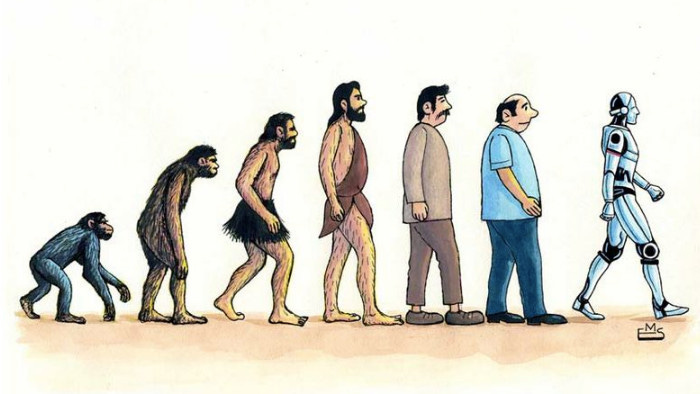
Besides, even deeper questions arise with the advancements of AI: What happens if we get to a point in which feelings, or even what we know as consciousness is broken down to simple 1s and 0s? If our creative process can be traced down to a biological algorithm and actually replicated by technology?9 We don’t know if this process would be exactly the same as the human one, but if it can produce results just as effectively, and if we as a society start to agree on these creative outputs being art as well, would we be completely replaceable by machines? What would make us different now that these so-praised human characteristics have been replicated by computers?
THE BEAUTY OF IMPERFECTION
I know these huge advancements in technology might make us think that the moment in which machines are able to replicate human thought is extremely near. And maybe it is. We can see the astonishing capabilities of ChatGPT and other AIs today, and this is only the beginning. This can appear promising if you think of the tools this can give us; or frightening, if you think about the place where we humans will be left with this new technology arising.
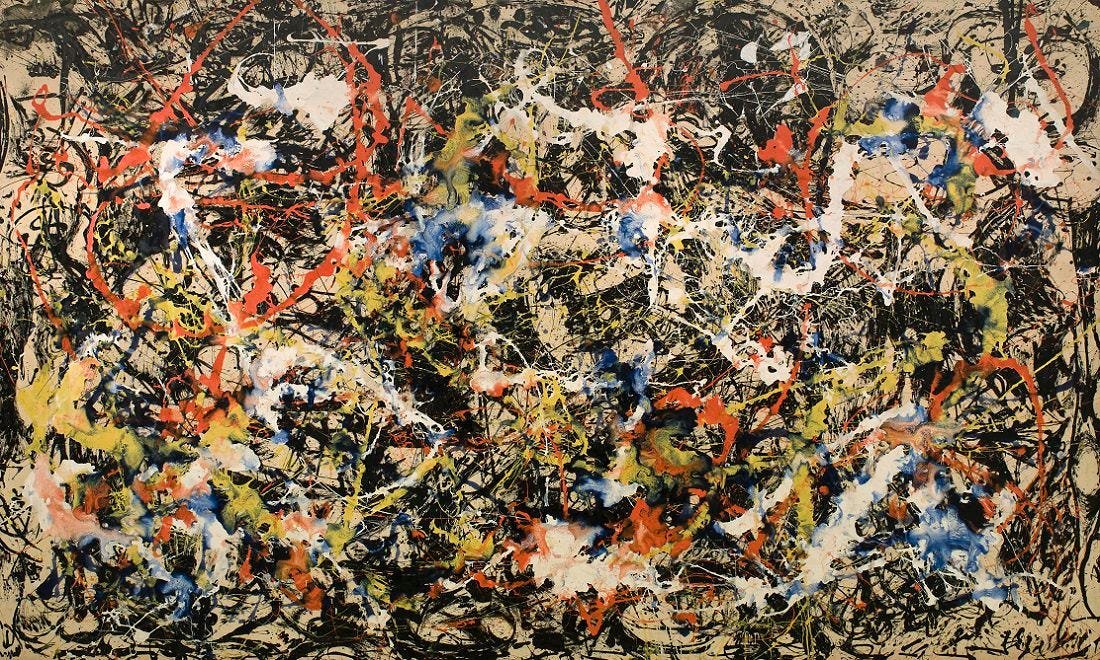
And yes, computers might be able to analyze trillions of variables, predict every possible outcome, minimize errors, and produce the most accurate results, but there’s something that neither AI nor machines are able to replicate: the beauty of our mistakes. I think this was the greatest insight I had from this extensive research.10 The way we humans think, the subjective way in which we understand the world around us, the way we truly care about others, as well as our unconventional ideas, gut-based decisions, and all of the mistakes that come with these, as well as each of our problematic and imperfect selves, is what makes us truly special, different from one another, and from machines. Would we enjoy living in a world in which everyone is perfect? In which none of us make or have any mistakes? We don’t need to compute all the possible outcomes or to control every single variable, and I think we often forget about this, especially in today’s world and accelerated life rhythm. So let’s remind what makes us different from a computer, instead of trying to make Chat GPT do everything for us, let’s live every moment, let’s feel, let’s allow ourselves to make mistakes and to be curious about learning through them. This imperfection is the only thing that codes won’t be able to replicate, it’s what makes us creative, what makes us special, and what makes us humans rather than just algorithms.
P.D. #1: This article is dedicated to my amazing and extremely smart friends, I really admire you and I wouldn’t have been able to write this without your support. Oakker, Héctor, Alexandra, Mario, Erik, Marián, Marijose, and all the others who have always been there for me, thanks for dedicating part of your time to having these deep talks that inspired my article and for giving me feedback about some of my often crazy ideas.
P.D. #2: Sorry, I know this article was way too long, but I think the topic really gives us a lot to talk about and these conversations gave me a lot to reflect on. So if you’d like a series of articles on these topics, such as neuroscience, computer science, AI, and metaphysics, please let me know.
Learn more about the mysteries of our subconscious mind.
I’m a big fan of this podcast and I especially love this episode, in which the host, a software engineer/influencer, talks with a doctor in particle physics/science communicator about some existential questions regarding human thought, AI, and the universe. The result is simply mind-blowing.
Check out this article about Steve Jobs talking on creativity: “Creativity is Just Connecting Things”.
It’s a quite complex machine, with very complex concepts to understand, but I found this video, which I think does a great job of explaining quantum computers in a simple and concise way.
Check out more of the astonishing scaling of data in quantum computing.
Read a more in-depth explanation of quantum computers and their memory/storage implications.
What is consciousness? Are we humans the only conscious animal? And other questions that surged to me while writing this article and I' still haven’t figured out completely: what’s the difference between consciousness and conscience? How are they related? Are ethics and religion involved in these definitions? Will any or both of them ever be traced down to simple algorithms?
These videos about the neuroscience of creativity and the creativity of robots made me better understand these processes as well as go philosophical about some questions regarding AI and our mental processes. They’re really worth watching.
Lastly, I want to share with you this amazing Ted Talk, which really made me reflect on what makes us unique as human beings: What is a Thought? How the Brain Creates New Ideas | Henning Beck.

